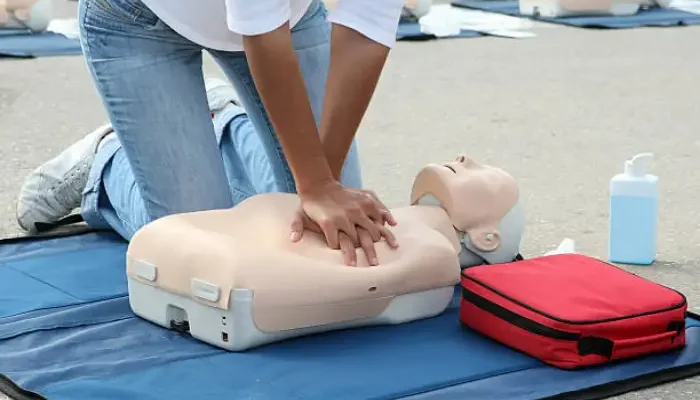Essential CPR Training Skills to Learn in Ottawa
Cardiopulmonary Resuscitation (CPR) is a crucial life-saving skill that everyone should learn. In Ottawa, as in any other city, being equipped with CPR skills can make a significant difference in emergency situations. Whether you’re a healthcare professional, a parent, or simply a concerned citizen, knowing how to perform CPR can mean the difference between life and death.
Essential CPR Skills To Learn In Ottawa:
Basic Life Support (BLS) Techniques
Basic life support techniques form the foundation of CPR training. This includes understanding the ABCs of resuscitation: Airway, Breathing, and Circulation. In Ottawa CPR classes, participants learn how to assess a victim’s airway, check for breathing, and initiate chest compressions if necessary.
Effective Chest Compressions
Proper chest compressions are vital for maintaining blood flow to vital organs during cardiac arrest. Ottawa CPR training emphasizes the importance of positioning, hand placement, and compression depth to ensure effectiveness. Participants learn how to perform compressions at a rate of 100 to 120 per minute, maintaining a steady rhythm.
Rescue Breathing
In addition to chest compressions, rescue breathing is another essential component of CPR. Ottawa CPR courses teach participants how to provide rescue breaths using techniques such as mouth-to-mouth or mouth-to-mask ventilation. Proper ventilation helps deliver oxygen to the victim’s lungs and can improve their chances of survival.
Automated External Defibrillator (AED) Use
AEDs are portable devices that deliver an electric shock to restore normal heart rhythm during sudden cardiac arrest. Learning how to use an AED is a crucial skill complementing Ottawa first aid cpr training. Ottawa CPR classes include hands-on practice with AEDs, teaching participants how to properly apply the pads, follow voice prompts, and deliver a shock if necessary.
Recognizing Signs of Cardiac Arrest
Early recognition of cardiac arrest is key to initiating timely CPR and AED intervention. Ottawa CPR training covers the signs and symptoms of cardiac arrest, including sudden loss of consciousness, absence of pulse, and abnormal breathing patterns. Participants learn to quickly assess the situation and take appropriate action.
Team Dynamics and Communication
In real-life emergency situations, effective teamwork and communication are essential for delivering high-quality CPR. Ottawa CPR courses often include scenarios that simulate team-based resuscitation efforts, allowing participants to practice coordination, leadership, and communication skills in a simulated environment.
Special Considerations and Modifications
CPR training in Ottawa addresses special considerations and modifications for specific populations, such as infants, children, pregnant women, and individuals with disabilities. Participants learn how to adapt their CPR techniques to suit the needs of different age groups and medical conditions.
Legal and Ethical Considerations
Understanding the legal and ethical aspects of CPR is important for anyone trained in life-saving techniques. Ottawa CPR classes provide education on topics such as consent, Good Samaritan laws, and the role of healthcare professionals versus lay rescuers in emergency situations.
Continuous Training and Recertification
CPR skills require regular practice and updates to maintain proficiency. Ottawa offers recertification courses and ongoing training opportunities to ensure that individuals stay current with the latest guidelines and best practices in CPR and emergency response.
Community Engagement and Public Awareness
Beyond individual training, raising public awareness about CPR and the importance of early intervention is crucial for improving survival rates from cardiac arrest. Ottawa CPR training programs often engage with the community through outreach events, public demonstrations, and educational campaigns.
In conclusion, learning CPR is a valuable investment in saving lives and promoting community safety. In Ottawa, individuals can acquire essential CPR skills through comprehensive training programs that cover basic life support techniques, effective chest compressions, rescue breathing, AED use, and more. By equipping themselves with these life-saving skills, residents of Ottawa can make a difference in emergency situations and contribute to a safer and more resilient community.






